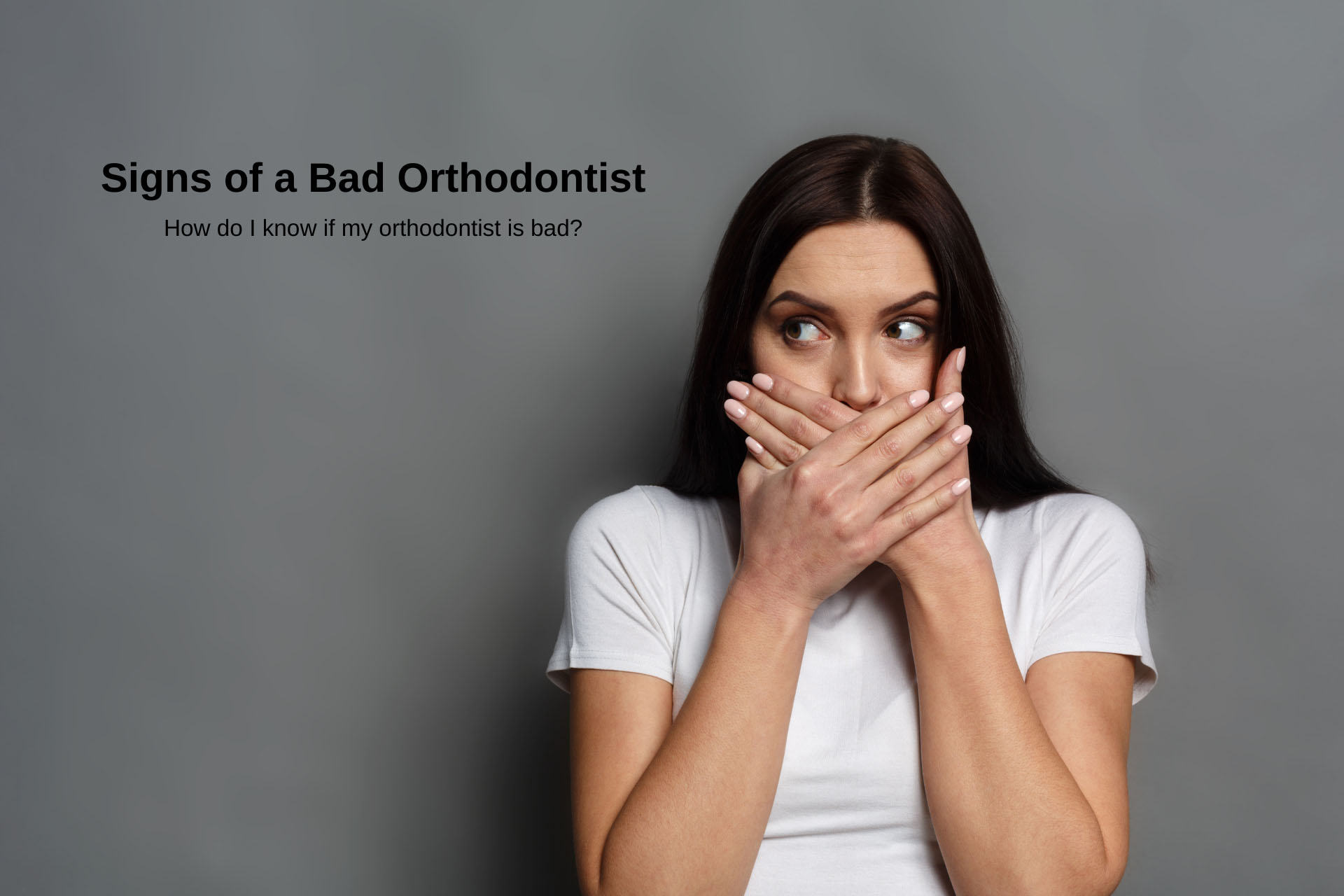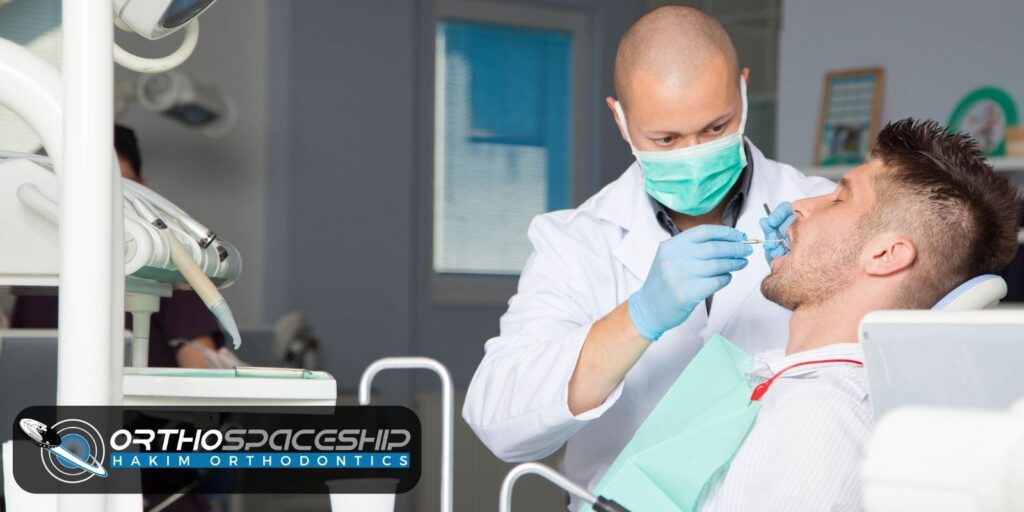How to Choose the Right Orthodontist in Los Angeles
Poor oral hygiene can lead to a host of dental problems, including crooked teeth and misaligned jaws. If left untreated, these issues can cause difficulty with chewing, speaking, and even breathing. Fortunately, orthodontic treatment can help to correct these problems and improve your overall oral health.
Orthodontists are dental professionals who specialize in the use of orthodontic appliances, such as metal braces and Invisalign, to straighten teeth and improve the alignment of the jaws. These treatments can be effective for both children and adults, and can help to improve the appearance of your upper and lower teeth.
Orthodontist Mistakes to Avoid
However, not all orthodontists are created equal, and it is important to choose one who is experienced and reputable. Here are some Orthodontist Red Flags that prove you may be dealing with a bad orthodontist:

1. Poor hygiene standards
A good orthodontist will always maintain high standards of hygiene in their office. This means that their office, equipment, and staff should be clean and organized at all times. If you notice poor hygiene in your orthodontist’s office, this may be a sign of a bad orthodontist.
2. Inadequate communication
Clear communication is essential in any doctor-patient relationship, and this is especially true for orthodontists. A good orthodontist will take the time to explain the treatment process, answer your questions, and address any concerns you may have. If your orthodontist is unable or unwilling to effectively communicate with you, this may be a sign of a bad orthodontist.

3. Poor treatment results
The ultimate goal of orthodontic treatment is to straighten your teeth and improve your bite. If your orthodontist is not achieving these results, or if your teeth are becoming worse despite treatment, this may be a sign of a bad orthodontist.
4. Unreasonable fees
Orthodontic treatment can be expensive, but a good orthodontist will be transparent about their fees and will work with you to create a payment plan that fits your budget. If your orthodontist is charging excessive or unexpected fees, this may be a sign of a bad orthodontist.

5. Unprofessional office staff
The office staff at your orthodontist’s office plays a crucial role in your overall experience. They should be professional, attentive, and courteous at all times. If you notice unprofessional behavior from the office staff, this may be a sign of a bad orthodontist.
6. Lack of credentials
Orthodontists are required to have specialized training and education in order to practice. This typically includes a dental degree and an orthodontic residency program. If your orthodontist does not have the appropriate credentials, this may be a sign of a bad orthodontist.

7. Unwillingness to refer you to a specialist
Orthodontic treatment can be complex, and there may be situations where your orthodontist needs to refer you to a specialist for additional care. A good orthodontist will be open to referring you to a specialist if necessary, and will work collaboratively with them to ensure that you receive the best possible care. If your orthodontist is unwilling to refer you to a specialist, this may be a sign of a bad orthodontist.
8. Lack of continuing education
Orthodontics is a rapidly evolving field, and it is important for orthodontists to stay up-to-date on the latest techniques and technologies. A good orthodontist will regularly participate in continuing education in order to provide their patients with the best possible care. If your orthodontist does not engage in continuing education, this may be a sign of a bad orthodontist.

9. Poor interpersonal skills
The orthodontist-patient relationship is an important one, and it is essential for your orthodontist to have good interpersonal skills. This means they should be able to establish a rapport with you, listen to your concerns, and empathize with your situation. If your orthodontist is unable or unwilling to establish a good relationship with you, this may be a sign of a bad orthodontist.
10. High turnover rate
A high turnover rate among staff members can be a sign of a bad orthodontist. This may indicate that the orthodontist has a poor management style, a difficult working environment, or other issues that are causing employees to leave. If you notice a high turnover rate among staff at your orthodontist’s office, this may be a sign that you are dealing with a bad orthodontist.
If you notice any of these signs with your orthodontist, it may be time to consider finding a new one. Your oral health is important, and it is worth it to invest in a reputable and skilled orthodontist who can provide you with the best possible treatment.
Choosing the Right Orthodontist
To find a new orthodontist, you can start by asking for recommendations from friends, family, or your regular dentist. You can also do some research online to find orthodontists in your area who have good reputations. When you are considering a new orthodontist, be sure to ask about their credentials, experience, and approach to treatment. It is also a good idea to schedule a consultation so that you can get a sense of their demeanor and communication style, and make sure that you feel comfortable with them.
Signs of a great Orthodontist
A great Orthodontist is typically skilled in diagnosing and treating a wide range of orthodontic issues, from crooked teeth to misaligned jaws. They are also adept at creating personalized treatment plans that address your unique needs and goals.
One of the key qualities of a great orthodontist is their ability to develop an effective treatment plan. This plan should be tailored to your specific orthodontic issue and should take into account your long-term oral health goals. A great orthodontist will take the time to carefully evaluate your teeth and jaws, and will use this information to determine the right course of treatment. This may involve the use of traditional braces or Invisalign, or a combination of both.
Another important quality of a great orthodontist is their ability to communicate effectively with their patients. This means taking the time to explain the treatment process, answering any questions you may have, and addressing any concerns you may have. A great orthodontist will also be open to working with you to develop a payment plan that fits your budget, so that you can afford the dental treatment you need.
In addition to their technical skills and communication abilities, a great orthodontist should also have a passion for their work. They should be dedicated to helping their patients achieve optimal oral health, and should be committed to providing the best possible care. This may involve staying up-to-date on the latest advances in orthodontic treatment, or working with other dental professionals to provide the most comprehensive care.
For children and teenagers, a great orthodontist should also be able to create a positive and engaging treatment experience. They should be patient and understanding, and should be able to explain the treatment process in a way that is easy for young patients to understand. This can help to alleviate any anxiety or fear that a child may have about undergoing orthodontic treatment.
Overall, a great orthodontist is someone who is skilled, compassionate, and dedicated to providing the best possible dental treatment to their patients. They are committed to helping you achieve optimal oral health, and will work with you to develop a treatment plan that is tailored to your unique needs and goals.
